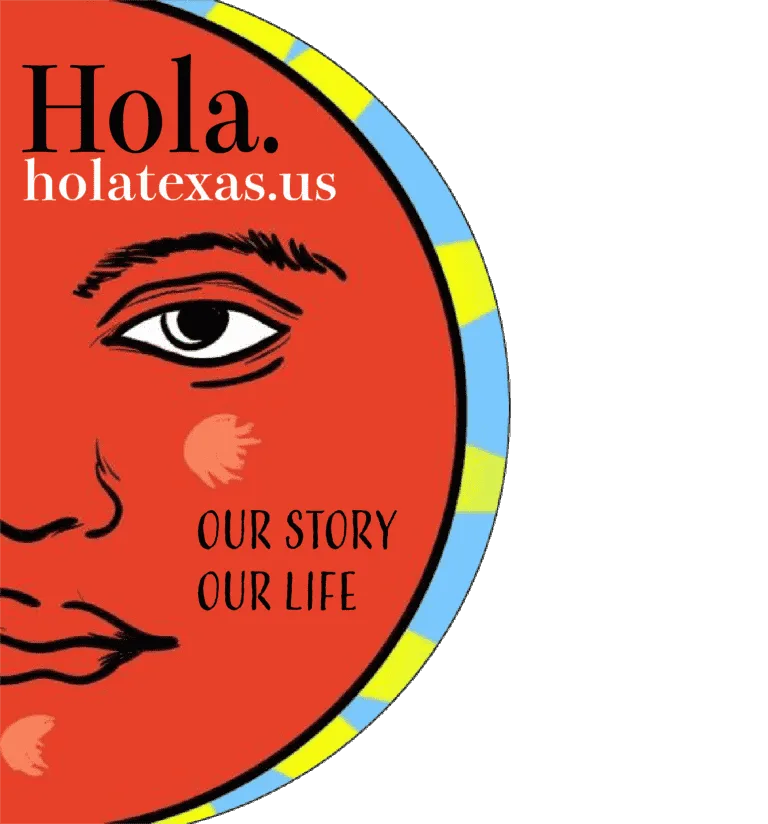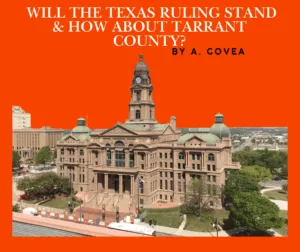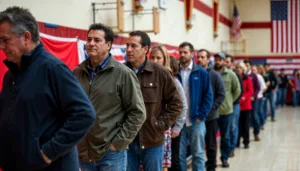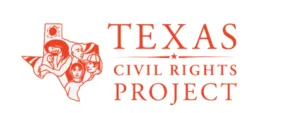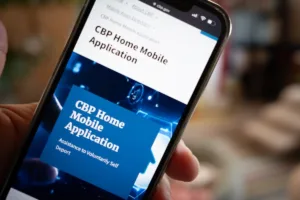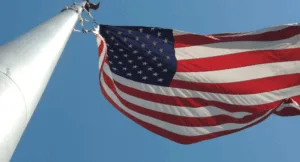Born an activist: a Venezuelan student protester turns into an advocate for Latinos in the United States.
Pilar Marrero
Spanish Version Included ( EN ESPONOL)
Among Cecilia González Herrera’s earliest memories is the successive closure of independent television channels and newspapers that existed in her country, Venezuela, when she was born in February 1999.
By the time she decided to study journalism at the age of 16, many independent media organizations had been closed or taken over by the government.
From a very young age, Cecilia saw the avenues of freedom of expression, political and personal freedom being closed in her native country and when she finished her secondary education she decided on journalism studies in the capital, Caracas.

“I thought it would be the only way to do politics without being a politician, to exercise a right to express oneself,” the young woman said.
Her mother, a political scientist by profession, warned her not to get involved in the student movement that at the time was leading the opposition against the government of Hugo Chávez.
But that warning was in vain. “You can’t go against who you are,” she says. Moreover, when she arrived at the university in 2016, the student protest movement was in full swing and would only intensify the following year, when student Juan Pablo Pernalete was killed by a National Guard during one of these demonstrations.
Cecilia participated in numerous protests during that one year she would study journalism in Venezuela, finishing two semesters and eventually moving with her family to the United States, when it was clear that her activism was a threat to her life.
“My mom told me, in Venezuela there is no future for you, especially if you want to do political activism, we are leaving here,” recalls the young woman, now 22 years old and a resident of Florida.
It has only been five years since that change, and Cecilia has learned English, has become active in local politics in the Kissimmee area, where she now lives, and has advocated for the Venezuelan diaspora along with others, to obtain Temporary Protected Status for Venezuelans (TPS).
She also founded with some friends, a group of young Venezuelans “for those who want to do social activism”.
“Living here I understood that we live in this community and that what happens here affects us”, explains the young woman, who in addition to learning English, recently finished community college and is about to start Political Science. All this while she awaits the legal resolution of her asylum case.
Her mother, who was trained as a political scientist and had a small business in Venezuela, now works at Walmart and makes Venezuelan food for sale in Kissimmee, Florida.
Cecilia has been active in the cause for a fair redistricting after the 2020 Census in the United States.
“As a community member in Osceola County, Florida, I have seen the impact of the lack of representation we have. I moved here 4 years ago and quickly realized that Latinos have no voice in government. Even with some Latinos in office, we are excluded from the decision-making process,” she says.
Although in Florida there are many Latino representatives, she says, “being well represented does not mean having a politician with a Hispanic surname, it means having someone who understands what the community is going through, who is close to it”.
Ideologically, Cecilia leans towards the Democratic Party, and that has earned criticism from some Venezuelan exiles who are followers of Trumpism, but the young woman, amid her pro-immigrant and pro-LGBT activism, feels more identified with the Democrats.
Recently, Cecilia participated in some redistricting hearings, and publicly criticized the attitude of a commissioner who prevented a citizen from testifying in Spanish during a meeting in Osceola County.
“He said English is the official language, which is not true. This county is over 52% Latino, the real question is what are our representatives doing to better understand us,” he notes. “We want to be part of the decision-making process.”
Cecilia has worked on local political campaigns and is interested in environmental issues. In 2020, she got involved on behalf of the Biden-Harris campaign.
“I know I won’t be able to go back to Venezuela for a long time,” she says. “But that doesn’t stop me from helping where I can. However, I think you get involved where you are.”
Her immediate priority, besides starting college, is to advocate for immigration reform but her future, she says, is in public service.
“I want to be in a public service position where Latinos haven’t arrived yet,” she explains. “We need more diversity, more women, more color in those boardrooms and making decisions for our own generation. Young people, with a fresh perspective.”
Nacida en la lucha: de las protestas estudiantiles en Venezuela al activismo pro-Latino en Estados Unidos
Pilar Marrero
Entre los primeros recuerdos de Cecilia González Herrera está el sucesivo cierre de canales de televisión y periódicos independientes que existían en su país, Venezuela, cuando ella nació en febrero de 1999, pero que ya no estaban cuando ella decidió estudiar periodismo a los 16 años.
Desde muy pequeña, Cecilia vio cómo se cerraban las vías de libertad de expresión, política y personal en su país natal y cuando terminó su educación secundaria se decidió por estudios de periodismo en Caracas.
“Pensé que sería la única forma de hacer política sin ser político, de ejercer un derecho a expresarse”, dijo la joven. Su mamá, politóloga de profesión, le advirtió que no se metiera en el movimiento estudiantil que por aquel entonces lideraba la oposición contra el gobierno de Hugo Chávez.
Pero esa advertencia fue en vano. “No se puede ir contra quien uno es”, dice. Además, cuando ella llegó a la universidad en el año 2016, el movimiento estudiantil de protestas estaba en pleno auge y solo se intensificaría al año siguiente, cuando el estudiante Juan Pablo Pernalete fue muerto por un Guardia Nacional durante una de estas manifestaciones.
Cecilia participó en numerosas protestas durante ese único año que estudiaría periodismo en Venezuela, terminando dos semestres y, finalmente, mudándose con su familia a los Estados Unidos, cuando estaba claro que su activismo era una amenaza para su vida.
“Mi mamá me dijo, en Venezuela no hay futuro para ti, especialmente si quieres hacer activismo político, nos vamos de aquí”, recuerda la joven, hoy de 22 años y residente de Florida.
Hace apenas cinco años de ese cambio, y Cecilia ha aprendido inglés, se ha vuelto activa en la política local del área de Kissimmee, donde ahora vive y ha abogado por la diáspora venezolana junto con otros paisanos, para conseguir el Estatus Temporal de Protección para los venezolanos (TPS).
También fundó junto a algunos amigos, un grupo de jóvenes venezolanos “para quienes quieran hacer activismo social”.
“Al vivir aquí entendí que vivimos en esta comunidad y que lo que pasa aquí nos afecta”, explica la joven, quien además de aprender inglés, terminó estudios de colegio comunitario y va a iniciar estudios de Ciencias Políticas este año. Todo, mientras espera la resolución legal de su caso de asilo.
La mamá de Cecilia, que era de formación politóloga, y tenía un pequeño negocio en Venezuela, ahora trabaja en Walmart y hace comida venezolana para vender en Kissimmee, Florida.
Cecilia ha estado activa en la causa por una redistribución justa de distritos electorales después del Censo 2020 en Estados Unidos.
“Como miembro de la comunidad en el condado de Osceola, en Florida, he visto el impacto de la falta de representación que tenemos. Me mudé aquí hace 4 años y rápidamente me di cuenta de que los latinos no tienen voz en el gobierno. Incluso teniendo algunos latinos en cargos, estamos excluidos del proceso de toma de decisiones”, señala.
Si bien en Florida hay muchos representantes latinos, dice la joven, “estar bien representado no significa tener un político con un apellido hispano, significa tener a alguien que entiende lo que padece la comunidad, que se acerque a ella”.
Ideológicamente, Cecilia se inclina por el partido demócrata, y eso le ha valido críticas de muchos exiliados venezolanos adeptos al Trumpismo, pero la joven, en medio de su activismo proinmigrante y pro-LGBT, se siente más identificada con los demócratas.
Cecilia participó en algunas audiencias para la redistribución de distrito, y criticó públicamente la actitud de un comisionado que impidió un testimonio en español de un ciudadano durante una reunión en el condado de Osceola.
“Dijo que el inglés es el idioma oficial, lo cual no es cierto. Este condado tiene más de 52% de latinos, la verdadera pregunta es que están haciendo nuestros representantes para entendernos mejor a nosotros”, apunta. “Queremos ser parte del proceso de toma de decisiones”.
Cecilia ha trabajado en campañas políticas locales y le interesan los temas del medio ambiente. En 2020, se involucró en favor de la campaña Biden-Harris.
“Yo sé que no voy a poder volver a Venezuela en mucho tiempo”, dice. “Pero no por eso dejo de ayudar en lo que se pueda. Sin embargo, creo que uno se involucra donde uno está”
Su prioridad inmediata, además de iniciar la universidad, es abogar por una reforma migratoria pero su futuro, dice, está en el servicio público.
“Yo quiero ocupar un puesto de servicio público en el que los latinos no hayan llegado todavía”, explica. “Necesitamos más diversidad, más mujeres, más color en esas salas de reunión y tomando decisiones para nuestra propia generación. Gente joven, con una nueva perspectiva”.
